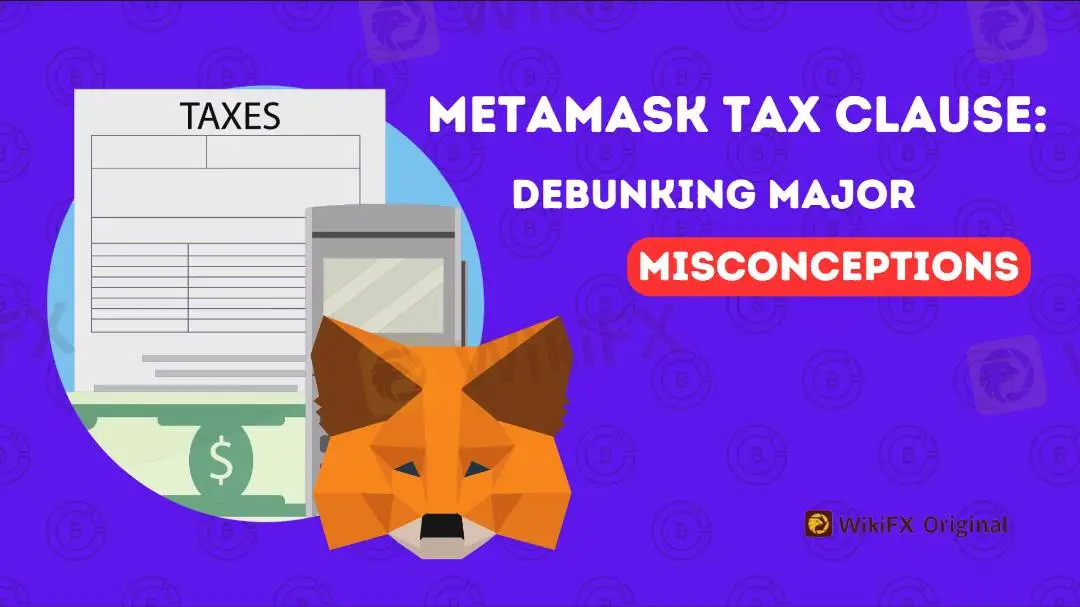简体中文
繁體中文
English
Pусский
日本語
ภาษาไทย
Tiếng Việt
Bahasa Indonesia
Español
हिन्दी
Filippiiniläinen
Français
Deutsch
Português
Türkçe
한국어
العربية
MetaMask Tax Clause: Debunking Major Misconceptions
요약:Accointing has recently provided valuable insights regarding MetaMask's tax policies, addressing the confusion among its users.

In response to the recent controversy surrounding MetaMask's updated terms of service and its tax clause, a recent update has been issued to clarify several misconceptions. Accointing, a leading crypto portfolio tracking firm, took to Twitter to shed light on the situation, emphasizing that the MetaMask tax clause specifically pertains to users who make purchases of products or services through the wallet service provider.

To clarify further, individuals who utilize MetaMask solely as a cryptocurrency wallet or for non-commercial purposes, without engaging in any transactions related to purchasing goods or services through the wallet, will not be subject to the taxes outlined in the tax clause.
Accointing also clarified that the tax mentioned in the clause does not pertain to customers' capital gains tax. Instead, it applies to taxes associated with the sale of services conducted between MetaMask users and the wallet provider, typically paid by the party responsible for collecting the tax.
In essence, the statement indicates that the obligation of paying these taxes lies with the entity responsible for collecting them. It implies that MetaMask, being the service provider facilitating the sales of services on its platform, would assume the responsibility of managing and fulfilling the tax payment associated with these transactions.
Various Aspects of Crypto Tax Policies
Tax authorities generally classify certain events as taxable, including the conversion or sale of cryptocurrencies into fiat currency or other digital assets. In some jurisdictions, receiving cryptocurrencies as payment for goods or services may also be considered a taxable event.
Furthermore, the profits or gains obtained from selling or exchanging cryptocurrencies in specific jurisdictions are typically subject to capital gains tax. The tax liability is generally determined based on the discrepancy between the acquisition cost and the proceeds from the sale.
As an example, the 2023 budget proposal in Italy includes a provision that suggests a 26% tax on capital gains derived from cryptocurrency trading. However, this tax would only be applicable if the profits from cryptocurrency exceed 2,000 euros.
Additionally, tax considerations may also arise from crypto mining and staking activities. In certain jurisdictions, the value of newly created or staked coins is considered as income and is therefore subject to taxation. Notably, the White House is urging Congress to include a 30% tax on the electricity costs associated with cryptocurrency mining in the upcoming federal budget.

면책 성명:
본 기사의 견해는 저자의 개인적 견해일 뿐이며 본 플랫폼은 투자 권고를 하지 않습니다. 본 플랫폼은 기사 내 정보의 정확성, 완전성, 적시성을 보장하지 않으며, 개인의 기사 내 정보에 의한 손실에 대해 책임을 지지 않습니다.
WikiFX 브로커
환율 계산기


